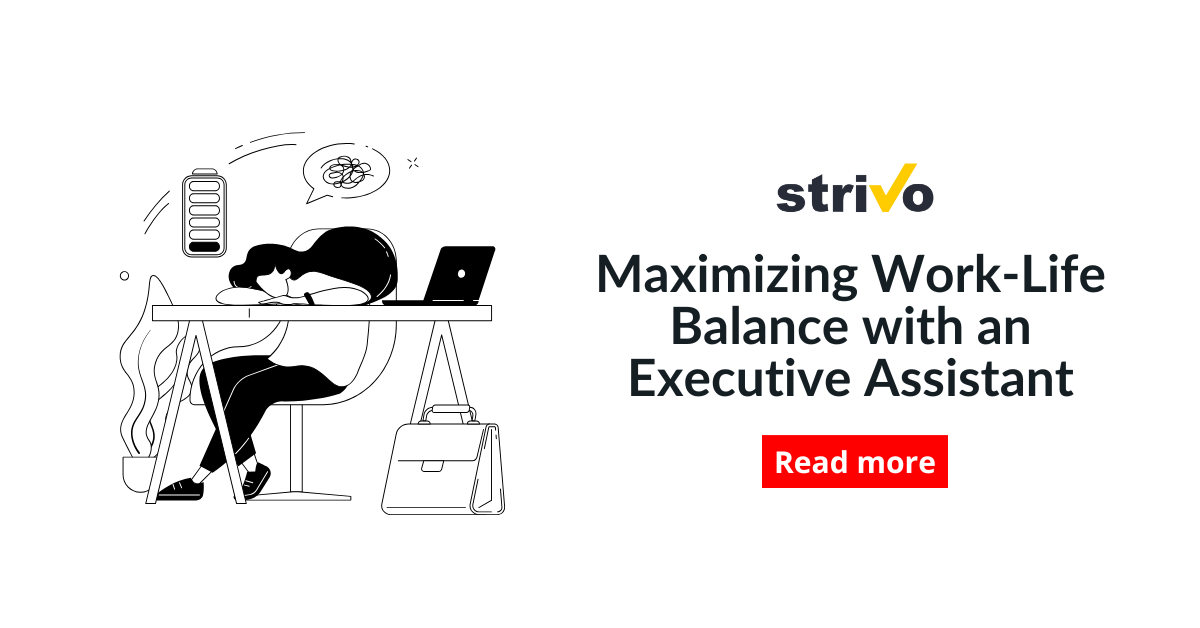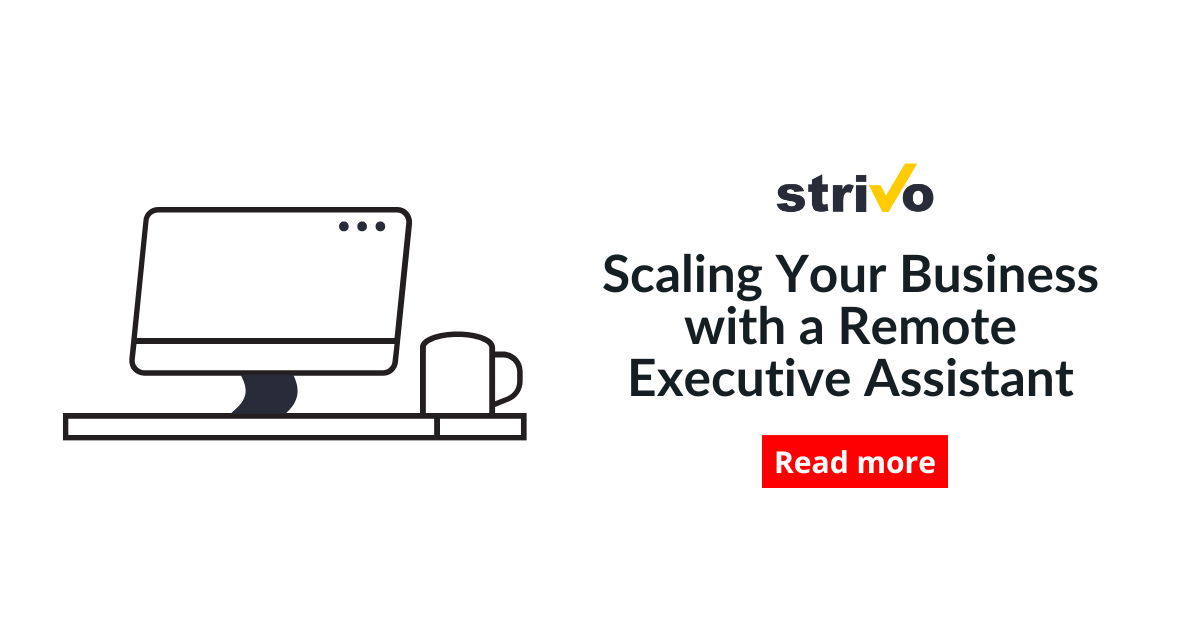In today’s business world, high performing founders need support systems to navigate the chaos of leadership. One of the most important parts of that support system is the C-Level Executive Assistant (EA). These super talented individuals go beyond the usual admin tasks to become business critical partners.
This executive assistant guide covers the key responsibilities, skills and value that C-Level Executive Assistants bring to the organisation. Whether you’re an executive looking to hire one or an aspiring EA, this guide will show you how they drive efficiency, support leadership, and contribute to long term business success.
What is a C-Level Executive Assistant?
A C-Level Executive Assistant is a highly experienced individual who supports top executives such as founders, CEOs, CFOs, COOs and other senior leaders. Unlike traditional administrative assistants, C-Level EAs are involved in strategic planning, decision making, and project management.
C-Level Executive Assistants don’t just manage calendars and answer phones. They are gatekeepers, confidants, and operational strategists who ensure the founder’s time is utilised effectively so they can focus on the big business priorities.
Being a C-Level EA is challenging and rewa rding. They are often privy to sensitive information, key decision making, and high risk projects that shape the future of the organisation. Their input is critical to the founder since they support and the organisation as a whole.
C-Level Executive Assistant Responsibilities
C-Level EAs have many responsibilities that require organisational skills, strategic thinking, and emotional intelligence. They are:
Strategic Calendar Management
- Meeting Prioritisation and Scheduling: A C-Level EA is responsible for managing their executive’s calendar to ensure meetings and appointments align with the organisation’s objectives. They need to assess the urgency and importance of requests and prioritise accordingly.
- Minimising Scheduling Conflicts: C-Level EAs prevent conflicts by planning and managing time blocks. They need to make sure key business meetings are never double booked and their founder has time to think and make decisions.
Communication
- Stakeholder Liaison: C-Level EAs are the interface between the founder and internal or external stakeholders. They manage communication to ensure messages are clear and timely.
- Drafting and Editing: They often draft emails, reports and other written communication. Their writing needs to reflect the tone, style and intent of the founder and keep the messaging consistent.
Project Management
- Managing Projects from Start to Finish: C-Level EAs manage high priority projects from planning to delivery. This includes coordinating teams, managing timelines and ensuring goals are met.
- Inter Departmental Coordination: They facilitate communication and collaboration between different departments or teams to ensure everyone is aligned and working towards the same goals.
Information
- Organising Sensitive Information: One of the most important part of the C-Level EA’s role is managing sensitive company information. They are privy to this information and need to keep it confidential and organised so it’s available when needed.
- Reports and Presentations: C-Level EAs often help prepare key reports and presentations. These help the founder make informed decisions and keep stakeholders up to date.
Event Management
- Corporate Events: From corporate events and conferences to board meetings and off site retreats C-Level EAs are involved in planning and managing these key events. They are responsible for logistics, scheduling and making sure everything runs smoothly.
- Budget Management: They may also manage the budget for these events to ensure expenses are within limits and the desired outcome is achieved.
Decision Support
- Research and Data: C-Level EAs support the founder’s decision making by researching, gathering data, and providing information to inform business strategy.
- Actionable Advice: Based on their research and analysis they may provide recommendations to support high level decisions and inform the overall business strategy.
C-Level Executive Assistant Skills
To be successful in their role C-Level EAs need to have a range of skills. These are:
Strategic
A C-Level EA needs to be able to think strategically and align their work to the organisation’s long term goals. This means having a good understanding of the company’s objectives and being able to anticipate and act ahead.
Communication
C-Level EAs need to be proficient in verbal and written communication. They need to communicate to a range of stakeholders and adapt their communication style to the audience while keeping the tone professional.
Time Management
A C-Level EA needs to be a master of time and task management. With so many responsibilities they need to juggle multiple tasks at once and ensure deadlines are met and high priority projects get attention.
Discretion
C-Level EAs have access to sensitive and confidential information. Their ability to keep discretion and confidentiality is key to the founder and the organisation.
Flexibility
In fast paced environments the ability to adapt quickly to changing priorities is critical. C-Level EAs need to be flexible and resourceful and adjust to changes in the business while still supporting the founder.
Problem Solving
C-Level EAs are often the first point of call when things go wrong. They need to be proactive in identifying potential problems and finding solutions that don’t disrupt the executive or the business.
How a C-Level Executive Assistant Delivers Business Outcomes
Hiring a C-Level EA is not just another support role in the organisation. It’s a strategic investment that can deliver business outcomes in several ways:
More Founder Time
By doing the administrative tasks, managing the calendar, and streamlining communication C-Level EAs free up the founder to focus on the core business strategy and high level decisions. With less time spent on routine tasks the founder can focus on growth and innovation.
Business Efficiency
C-Level EAs are key to optimising the organisation. Through project management they eliminate bottlenecks, streamline workflows, and ensure tasks are completed on time which in turn increases overall productivity.
Internal and External Relationships
As the main point of contact for many stakeholders C-Level EAs build relationships with clients, team members, and external partners. By doing so they create a positive and collaborative working environment for the organisation.
Strategic Initiatives
C-Level EAs support strategic initiatives by researching, tracking, and ensuring key milestones are met. Their ability to manage and report on the delivery of these initiatives allows the founder to make informed decisions and adjust the strategy as needed.
How to hire the right C-Level Executive Assistant
Hiring the right C-Level EA requires a thorough evaluation of skills, experience and cultural fit. Here are the steps to follow:
Describe the Role
Before you start the hiring process you need to define the specific responsibilities and expectations of the role. A clear job description will attract the right candidates and ensure the founder’s needs and the EA’s skills align.
Industry Experience
While a C-Level EA’s core skills are transferable across industries, industry experience can speed up the onboarding process. Look for candidates who have experience supporting senior executives in your industry or in a similar business.
Soft Skills
In addition to technical skills, soft skills such as communication, flexibility and emotional intelligence are key. These skills will determine how well the candidate can work with others and support the founder in high pressure situations.
Test Problem Solving
Scenario based questions can test a candidate’s problem solving skills. Ask candidates how they would approach certain challenges or handle unexpected situations to gauge their critical thinking.
Training and Development for C-Level Executive Assistants
Continual learning is essential for EAs to stay ahead in fast changing industries. Investing in training not only adds to their skillset but also increases their value to the executive and the organisation. Consider the following training:
- Project Management Certification (PMP): Helps them manage complex projects with multiple stakeholders and deadlines.
- Entrepreneurial Operating System (EOS) Training: Gives them insight into business frameworks and operational processes that align with organisational goals.
- Advanced Communication Workshops: Sharpens interpersonal, negotiation and presentation skills.
Technology for C-Level Executive Assistants
In today’s tech driven business world C-Level EAs use various tools to manage their responsibilities. Some of the tools are:
- Project Management Software (Asana, Trello): To track tasks, projects and deadlines.
- Calendar and Scheduling Tools (Google Calendar, Microsoft Outlook): To manage schedules and appointments.
- Communication Platforms (Slack, Zoom): To facilitate internal communication.
- Document Management Systems (Google Workspace, Microsoft 365): To store and share documents securely.
Future of the Executive Assistant role
The C-Level Executive Assistant role is changing as the business world gets more complex. Stay ahead of the curve:
- More Strategic Involvement: EAs will be more strategic, supporting decision making and contributing to business strategy.
- Remote and Hybrid Work: EAs will need to adapt to new work environments, supporting executives in hybrid or fully remote offices.
- Tech Savvy Operations: As technology evolves C-Level EAs will be expected to get up to speed with new tools including AI driven scheduling and virtual collaboration platforms.
Why Every Founder Needs This Executive Assistant Guide
Founders navigating complex industries can benefit greatly from understanding the C-Level EA role. This executive assistant guide explains the role and provides practical advice on hiring, developing and getting the most out of top level executive support. Organisations that invest in this strategic partnership will gain a competitive edge.
Unlocking Executive Potential
A C-Level Executive Assistant is more than just a behind the scenes support role—they are a strategic partner to the organisation. With the right blend of skills, experience and strategic thinking these professionals will boost executive performance, simplify operations and support long term business goals.
Let’s go and book a discovery call with Strivo today to get the most out of their C-Level EAs and their leadership teams will drive growth and innovation.




